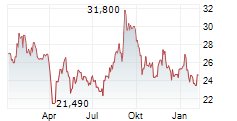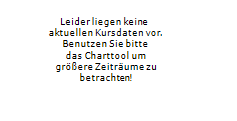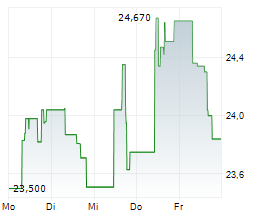
TOKYO and CAMBRIDGE, Mass., Aug 25, 2025 - (JCN Newswire) - Eisai Co., Ltd. (Headquarters: Tokyo, CEO: Haruo Naito, "Eisai") and Biogen Inc. (Nasdaq: BIIB, Corporate headquarters: Cambridge, Massachusetts, CEO: Christopher A. Viehbacher, "Biogen") announced today that the anti-amyloid beta(AB) monoclonal antibody "LEQEMBI(R)" has been launched in Austria on August 25, 2025 and will be launched in Germany on September 1, 2025. LEQEMBI received the European Commission (EC) approval in April 2025 as the first therapy that targets an underlying cause of Alzheimer's disease (AD). It is indicated for the treatment of adult patients with a clinical diagnosis of mild cognitive impairment(MCI) and mild dementia due to AD ( collectively referred to as early AD) who are apolipo protein E 4(ApoE 4*) non-carriers or heterozygotes with confirmed amyloid pathology.1 Germany and Austria will mark the first launches in the EU.
Following the EC approval, Eisai has been collaborating with the regional and local healthcare authorities to implement the mandatory authorisation requirements ahead of launch. The required controlled access program** is now in place in Austria and Germany, enabling the launch in these first two EU countries.
AD is a progressive, relentless disease with AB; and tau as hallmarks. AD progresses in stages that increase in severity over time, and each stage of the disease presents different challenges for those living with AD and their care partners. There is a significant unmet need for new treatment options that slow the progression of AD by initiating therapy from its early stage and continuing it in order to reduce the overall burden on people affected by AD and society. Only LEQEMBI fights AD in two ways - targeting both amyloid plaque and protofibrils***, which can impact tau downstream.
In the Clarity AD clinical trial, the primary endpoint was the global cognitive and functional scale, Clinical Dementia Rating - Sum of Boxes (CDR-SB).1 Treatment with lecanemab (n=757), in the EU indicated population (ApoE 4 non-carriers or heterozygotes, measured by controlled-based multiple imputation), reduced clinical decline on CDR-SB by 31% at 18 months compared to placebo (n=764).1
In the EU indicated population (ApoE 4 non-carriers or heterozygotes) (n=757), the most common adverse reactions were infusion-related reaction (26%), ARIA-H (13%), headache (11%) and ARIA-E(9%). Symptomatic ARIA-E occurred in 2% of participants. Symptomatic ARIA-H occurred in 0.8% of patients.1
Eisai serves as the lead for lecanemab's development and regulatory submissions globally with both Eisai and Biogen co-commercializing and co-promoting the product and Eisai having final decision making authority. In the EU (excluding the Nordic countries), Eisai and Biogen will co-promote the medicine, with Eisai distributing the product as the Marketing Authorization Holder.
For more details, please visit: https://www.eisai.com/news/2025/pdf/enews202557pdf.pdf
Source: Eisai
Copyright 2025 JCN Newswire . All rights reserved.
© 2025 JCN Newswire



